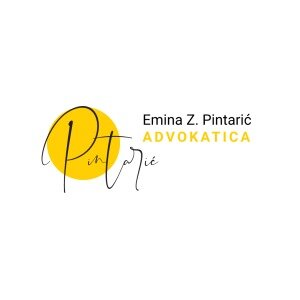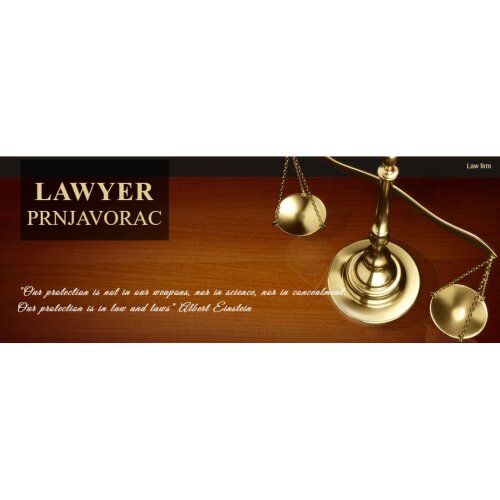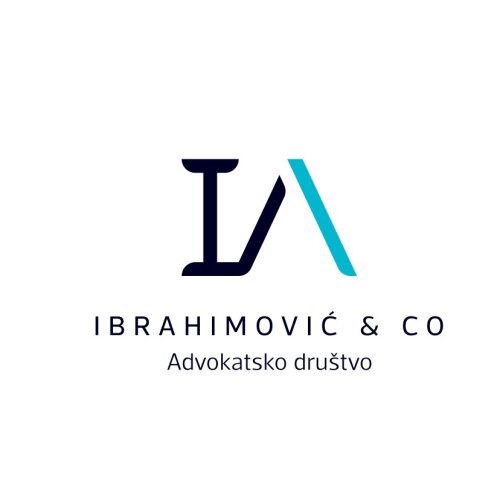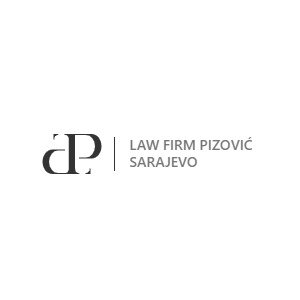Best Energy Regulatory Law Lawyers in Bosnia and Herzegovina
Share your needs with us, get contacted by law firms.
Free. Takes 2 min.
Or refine your search by selecting a city:
List of the best lawyers in Bosnia and Herzegovina
About Energy Regulatory Law in Bosnia and Herzegovina
Energy Regulatory Law in Bosnia and Herzegovina is a specialized field focused on the legal frameworks governing the generation, transmission, distribution, and supply of energy, including electricity, natural gas, and renewable energy sources. This area of law covers licensing, tariff setting, grid access, market competition, consumer protection, and compliance with both national and international environmental and technical standards. The regulatory environment is shaped by the country’s unique political structure, with separate regulations at the state and entity levels, and guided by the goal of aligning with EU energy legislation and policies.
Why You May Need a Lawyer
Individuals and companies may require legal assistance with Energy Regulatory Law in various scenarios, such as applying for energy sector licenses, resolving disputes over grid access or tariffs, navigating compliance audits by regulatory authorities, or entering joint ventures and purchase agreements in the energy field. Lawyers can provide guidance on interpreting complex regulations, representing clients in administrative or judicial proceedings, advising on renewable energy investments, and helping ensure compliance with local and international standards. Whether you are a property developer, utility operator, independent power producer, business owner, or investor, a lawyer with expertise in this area can help you protect your interests and meet regulatory requirements.
Local Laws Overview
Bosnia and Herzegovina’s legal framework for energy regulation is complex due to its administrative structure, consisting of the state level, the Federation of Bosnia and Herzegovina (FBiH), and the Republika Srpska (RS), each with its own regulatory authorities. Key state-level bodies such as the State Electricity Regulatory Commission (DERK or SERC), together with the entity-level regulators FERC (Federation Regulatory Commission for Electricity) and RERS (Regulatory Commission for Energy of Republika Srpska), oversee licensing, tariff approval, and supervision of the energy market. The framework rests on several core laws, including the Law on Transmission of Electric Power, Regulator and System Operator, entity-specific laws on electricity, and regulations transposing aspects of the EU Energy Community Treaty. The laws address issues like unbundling energy activities, market opening, third-party access to networks, renewable energy incentives, and consumer rights protections.
Frequently Asked Questions
What is the main regulatory body for energy in Bosnia and Herzegovina?
At the state level, the State Electricity Regulatory Commission (SERC or DERK) oversees transmission system regulations and cross-entity issues, while FERC and RERS regulate electricity at the entity level.
What types of licenses are required to operate in the energy sector?
Licenses are required for generation, transmission, distribution, supply, and trade in electricity and gas, depending on the activity and the entity in which you intend to operate.
How are energy tariffs and prices regulated?
Tariffs and prices are set and approved by the regulatory commissions, based on prescribed methodologies that consider costs, investments, and consumer protection principles.
Can foreign investors participate in the energy sector?
Yes, foreign investment is permitted, but investors must comply with local laws, licensing requirements, and, for certain activities, obtain national security clearance.
What are the main challenges in energy sector project development?
Common challenges include navigating multiple layers of regulation, obtaining necessary permits, addressing environmental impact requirements, and managing local stakeholder interests.
Is there support for renewable energy projects?
Both entities implement regulations and incentive schemes for renewable energy, such as feed-in tariffs and guaranteed purchase of electricity from qualified suppliers, though specific rules vary between entities.
What consumer protections exist in the energy market?
Regulations require fair access, transparent billing, the right to appeal decisions, and compensation in cases of service disruption or breach by service providers.
How are disputes resolved in the energy sector?
Disputes can be resolved through administrative proceedings before regulatory commissions or, if necessary, through court action. Mediation is sometimes encouraged.
Is harmonization with EU energy law ongoing?
Yes, Bosnia and Herzegovina is a signatory to the Energy Community Treaty and works to harmonize its laws and regulations with EU directives and standards, especially regarding market liberalization and environmental protections.
How can I ensure compliance with energy regulations?
Timely legal counsel, familiarity with applicable laws, staying updated on policy changes, and proactive communication with regulatory bodies are all crucial for compliance.
Additional Resources
Several organizations, government agencies, and authoritative bodies can provide further information or assistance related to Energy Regulatory Law in Bosnia and Herzegovina, including:
- State Electricity Regulatory Commission (DERK/SERC)
- Regulatory Commission for Energy of the Federation of Bosnia and Herzegovina (FERK)
- Regulatory Commission for Energy of Republika Srpska (RERS)
- Ministry of Foreign Trade and Economic Relations of Bosnia and Herzegovina
- Energy Community Secretariat
- Chambers of Commerce in FBiH and RS
- Various sector-specific associations and NGOs focusing on energy and environmental law
Next Steps
If you require legal assistance in the field of Energy Regulatory Law in Bosnia and Herzegovina, start by gathering documentation relevant to your situation (such as contracts, permits, or correspondence with authorities). Identify the specific regulatory area or issue at hand and make a list of your questions or concerns. Next, consult with a qualified legal professional who specializes in energy law and has experience dealing with regulatory bodies in Bosnia and Herzegovina. You can contact local bar associations for referrals, reach out directly to specialized law firms, or seek guidance from one of the regulatory authorities mentioned above. Always ensure your lawyer is well-versed in the complex, multi-jurisdictional environment of Bosnia and Herzegovina’s energy sector to secure the best possible advice and representation.
Lawzana helps you find the best lawyers and law firms in Bosnia and Herzegovina through a curated and pre-screened list of qualified legal professionals. Our platform offers rankings and detailed profiles of attorneys and law firms, allowing you to compare based on practice areas, including Energy Regulatory Law, experience, and client feedback.
Each profile includes a description of the firm's areas of practice, client reviews, team members and partners, year of establishment, spoken languages, office locations, contact information, social media presence, and any published articles or resources. Most firms on our platform speak English and are experienced in both local and international legal matters.
Get a quote from top-rated law firms in Bosnia and Herzegovina — quickly, securely, and without unnecessary hassle.
Disclaimer:
The information provided on this page is for general informational purposes only and does not constitute legal advice. While we strive to ensure the accuracy and relevance of the content, legal information may change over time, and interpretations of the law can vary. You should always consult with a qualified legal professional for advice specific to your situation.
We disclaim all liability for actions taken or not taken based on the content of this page. If you believe any information is incorrect or outdated, please contact us, and we will review and update it where appropriate.
Browse energy regulatory law law firms by city in Bosnia and Herzegovina
Refine your search by selecting a city.













